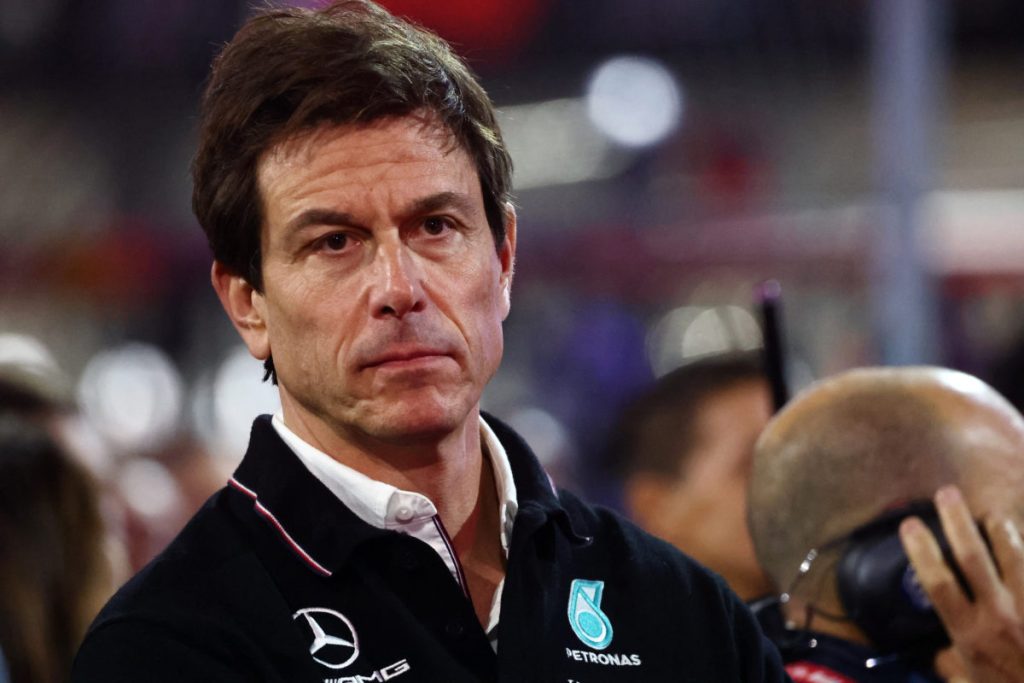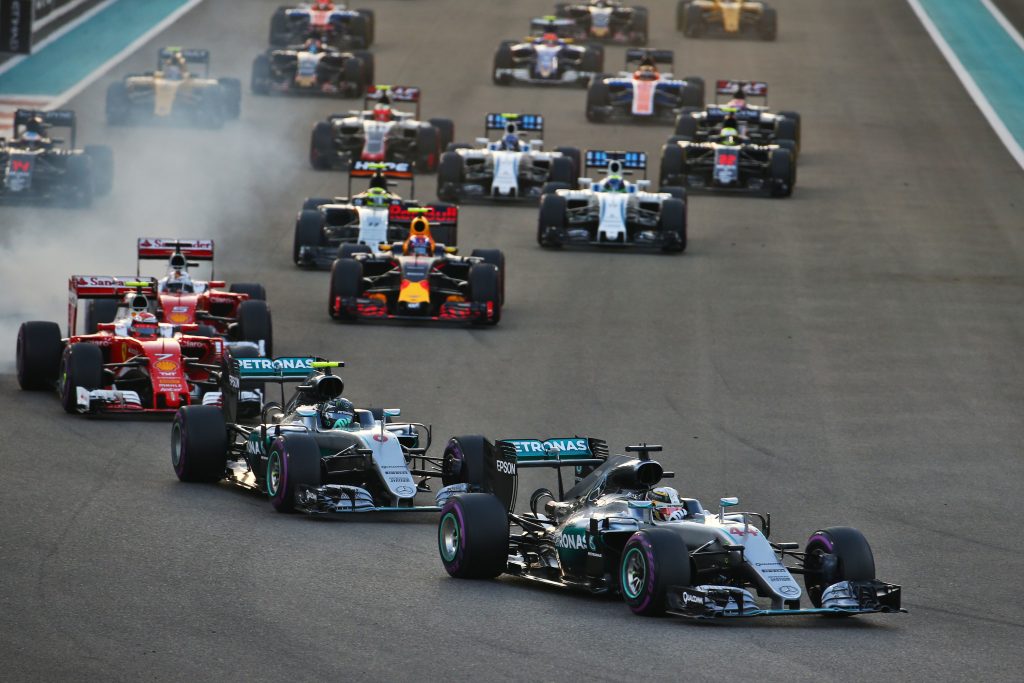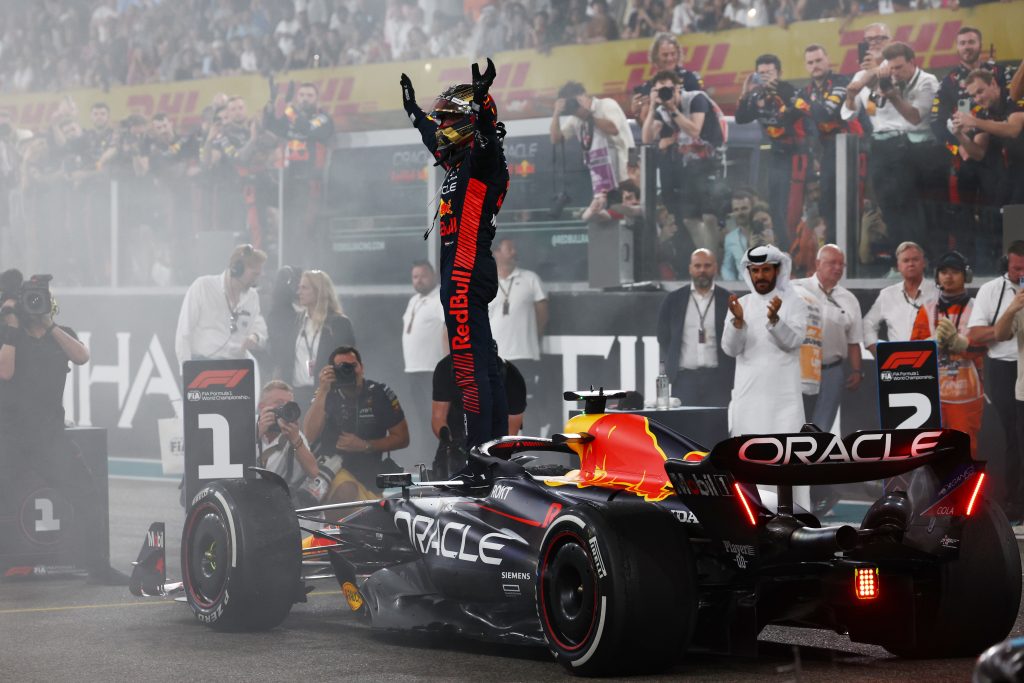

Arguably, that could have been F1’s first perfect season, only for Lewis Hamilton and Nico Rosberg to wipe out one another on the opening lap of the Spanish Grand Prix.
Beyond that, Hamilton suffered an engine failure 16 laps from the chequered flag whilst leading the Malaysian Grand Prix, denying Mercedes what could also then have been statistically the best season in F1 history in terms of wins-to-races percentage.
Seven years on from that crushing Mercedes campaign, it is Red Bull that can now claim to possess the best record in F1, winning 21 of 22 races in 2023 for a 95.45 percent success race, beating the 35-year-old mark of McLaren when it won 15 of 16 grands prix for its 93.75 percent benchmark.
Like Mercedes in 2016, Wolff knows Red Bull, with its stranglehold on the sport, is in a luxurious and enviable position that makes what could unfold in 2024 an obvious concern – that its supremacy will continue.
“They will have started next year’s car way ahead of everybody else,” said Wolff, speaking to select media, including Speedcafe.
“If we were in their situation, looking at our historic strategy, we would have probably been all hands on deck by July on next year’s car.
“That’s a month and a half earlier than us, so when you calculate the gains that you make, in aero alone, you are talking about a couple of tenths.”
It is known there was no development on Red Bull’s all-conquering RB19 after the summer break, yet it still won – via champion Max Verstappen alone – nine of the 10 races.
Wolff revealed the earliest his team started work on new machinery was the “beginning of July…where we had all groups on next year’s car”.
As to the benefits Red Bull will feel next season, Wolff said: “You get out of the blocks in a good way, you’re leading, you’re the benchmark, you understand the car, and you’re adding performance.
“You put an aero update on the car and it materialises as you expected, and then you’re in the lead by half a second.

“We were there. You’re in a cycle of positivity where you’re gaining an advantage, and this is the headwind we are facing at the moment.
“We haven’t won the last two championships and, in that respect, our car just needs to come out of the blocks running well.”
Wolff can only hope that what he describes as “the law of diminishing returns” works against Red Bull, whereby it starts to run out of steam with its understanding of the current ground-effect aerodynamic regulation set.
Rival team principal Christian Horner is convinced there will be greater convergence next season, and that Red Bull will not have it all their own way during a record-breaking 24-race calendar.
Wolff would dearly love to believe Horner is right, and that the “development curve, or performance curve, flattens”.
He added: “The more mature the regulations, the more you can extract.
“Maybe our development curve, because we are behind, is still steeper, but that is industrial theory. Whether you can apply it to the world of sports, I’m not quite sure.”
At least tipping his hat to what Red Bull has achieved, he said: “It’s good engineering.
“Their engineering team has just done a good job. They came out of the block, for whatever reason, much better than everybody else, and they have a driver who’s on top of his game.”

In contrast, Mercedes has so far failed to fully get to grips with the nuances of the current rules.
In 2022, and like many other teams, it had to cope with the renowned porpoising effect, with its cars bouncing up and down to such an extent that drivers Lewis Hamilton and George Russell were suffering from back pain at the end of a grand prix.
It slowly engineered itself into a position where it managed to win the penultimate race of the season in São Paulo, but that only masked the deficiencies of the car and steered the technical team down a cul-de-sac, misguided in the belief it was finally on the right track.
Following qualifying in the first race of this year in Bahrain, the errors of its ways were apparent, leading to the realisation it effectively had to rip things up and start again. Next year’s W15 will be the result of its developmental change in direction.
For 2023, stymied by the cost cap and unable to fast-track changes, Mercedes tinkered and toyed with ideas, seeking to gain a greater understanding of the rules in the hope of being in a better position for 2024.
Assessing why it has been so difficult to be consistent, with his team ending 2023 without a win for the first time in 12 years, Wolff said: “The aero works completely differently.
“You have a ground-effect car that we didn’t have before. They are, therefore, aerodynamically more fragile.
“On top of that, you have a tyre that needs to be in exactly the window for it to perform, and we’re talking a few degrees up or down.
“If you have a predictable car, that is stable, and has a good solid platform, then you’re struggling less in terms of tyre sliding and degradation. It’s a vicious circle.”
It is no wonder Wolff was forced to describe the past year as “tough”, not quite as bad as 2022 due to his team “not fishing in the dark” as much as then.
Wolff believes the overall results, with Mercedes garnering a small degree of respectability by finishing second in the constructors’ championship, did not show the team was “moving forward with the car and its understanding for next year”.
The W15 will be completely new, “with a different chassis, different aero characteristics, different suspension”, said Wolff. “Everything that you can change, we’ve changed.”
As to how it will fare on track, Wolff is naturally cautious, particularly given the aforementioned advantage he feels Red Bull will possess.
“The results so far in the virtual world are positive, but we need to be careful in terms of managing our expectations,” he said.
“We need such a step to catch up and fight for a championship but, obviously, when you do a radical step, that can also mean lots of new learning.”




















Discussion about this post